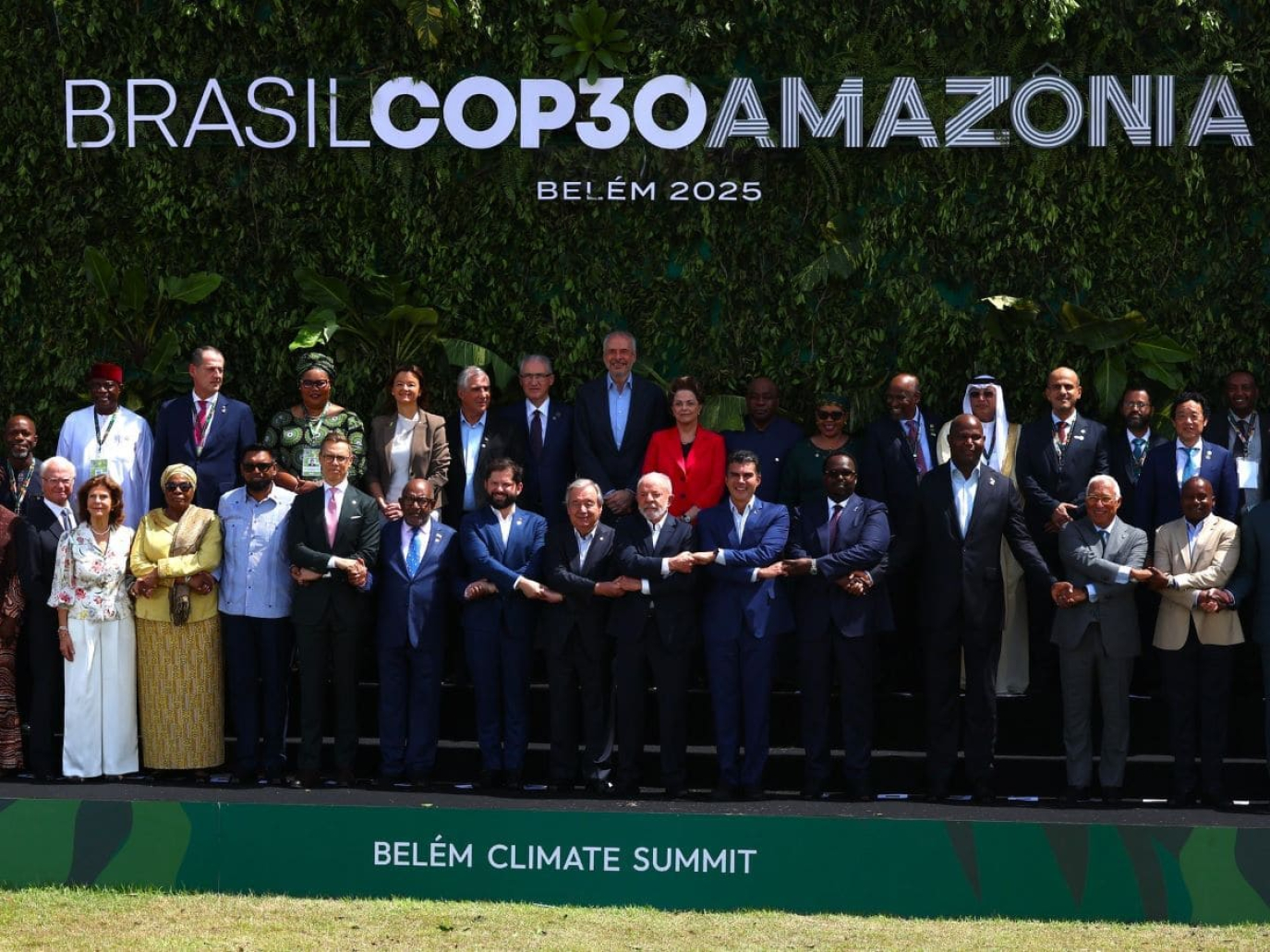
Climate negotiations are celebrating their 30th anniversary, with the start of the COP in Belém, Brazil, today, Monday 10 November. For the first time in years, I will be following a UNFCCC summit remotely, supervising a group of colleagues and monitoring some of the key topics in detail, such as adaptation, the carbon market and climate finance.
The question on everyone's mind is: will this be a turning point for the COP, or will it reflect the current sluggishness that much of the Western world is experiencing? Of course, COP30 will be the first negotiation to focus primarily on the implementation of the Paris Agreement: where do we stand with national emission reduction plans (NDCs), how do we proceed with the climate finance roadmap to mobilise 1.3 trillion by 2035, how do we reform global climate governance, hopefully including negotiations on biodiversity and desertification?
More and more, we are entering a phase in which meetings must be attended by finance and foreign ministers, not just environmental ministries: the stakes are increasingly high and complex, in completely uncharted territory. COPs will become increasingly important sites for discussion on the success of initiatives and technologies (CCS, climate bonds, carbon markets, biofuels, agroecology, water), multi-stakeholder forums, and political, geopolitical and commercial debate. So, let COP30 begin! Here are some of the topics to keep an eye on.
Brazil
A symbolic and utterly unsuitable venue for negotiations, chaotic Belém, at the edge of the Amazon rainforest, is a perfect embodiment of the non-linear style of Lula and COP30 President André Corrêa do Lago. From the beginning, Brazil has exerted considerable diplomatic effort to use the event to forge ties and promote climate networks, drawing on the Brazilian concept of mutirão.
Adapted from indigenous practice, mutirão “refers to a community coming together to work on a shared task, whether it be harvesting, building or supporting each other,” stated André Corrêa do Lago. “By sharing this valuable ancestral wisdom and social technology, the incoming COP30 presidency calls on the international community to join Brazil in a global mutirão against climate change, a global effort of cooperation among peoples for the advancement of humanity.”
That do Lago and Lula wanted to shake things up was already clear at the Climate Summit in New York, in a series of proposals to reform climate diplomacy itself. Whether these will actually be taken up or disappear into the tangled web of initiatives to be discussed remains to be seen. The agenda already includes the Integrated Forum on Climate Change and Trade (IFCCT), which seeks to establish a unified platform within the WTO to discuss the interconnections between these issues, in particular the much-feared European CBAM, a topic that is sure to be hotly contested.
Also worthy of note is the combative Environment Minister Marina Silva, who reiterated the importance of just transition by launching an initiative called Global Ethical Stocktake (GES): it will pursue climate justice and feature a significant role for indigenous communities, marginalised groups, workers and vulnerable individuals. “This initiative simply aims to integrate the ethical dimension, to strengthen political decisions and technical measures,” she told The Guardian. “We already have virtually all the technical solutions to address climate change, biodiversity loss and even the most pressing social issues. What is needed is an ethical commitment to apply our technical capabilities and accelerate our political decisions, ensuring that we meet the commitments we have already made.”
The American issue and the Chinese unknown
The US is the new climate pariah. It has submitted its NDCs andsome of Joe Biden's Inflation Reduction Act policies are holding on, but this is merely a nugget in light of its 32% cumulative emissions into the atmosphere and lack of active support for an emissions reduction plan. “Trump is against humanity. His absence here proves it,” said Colombian President Gustavo Petro unflinchingly, against whom the United States imposed sanctions last month.
With tens of billions of dollars in environmental cooperation aid eliminated, Washington has burned years of soft power and hard work to hide its inability to decarbonise the economy. Governors, senators, business leaders and US NGOs will be present at COP30 in an attempt to staunch the bleeding. The words of Gina McCarthy, former national climate adviser to the White House and the US Environmental Protection Agency (EPA), are emblematic: "America is ready to do its part and will be coming to Belem in full strength. Together, our mission is to show the world that the Trump administration does not reflect the values or opportunities available in the United States today. Here, governors, mayors and businesses are committed to complying with the Paris Agreement, and we are striving to build a future based on clean energy for all our children and grandchildren. The governors of the U.S. Climate Alliance are reducing emissions while strengthening the economy and reducing energy costs. Twenty-four states [Democratic, ed.] have reduced greenhouse gas emissions by 24% from 2005 levels, while increasing their collective GDP by 34%." Of course, it is not yet time to send the green helmets to Washington, but in spite of the DEM initiatives, the US has a very poor track record in mitigation and climate finance.
No surprises are expected. Thus, China will keep a low profile by following Brazil's proposals, but without committing in the absence of its US counterpart. It will focus squarely on climate finance supported by Western countries, pay close attention to trade discussions, and support all initiatives to decarbonise the economy, primarily electrification.
Adaptation
The game has been known for some time, but now it must be played seriously. A yardstick for measuring the success of COP30 will be progress on the Global Goal on Adaptation (GGA), including the key agreement on the shortlist of adaptation indicators and the launch of the first global adaptation assessment report.
One of the core topics will also be finance for adaptation, with a target to triple current resources. Bringing portfolios into alignment with these indicators early on can help institutions to show leadership, transparency and accountability as global standards for adaptation finance emerge.
The importance of this was reiterated by former UN Secretary-General Ban Ki Moon in an editorial on politico.eu: “Every dollar invested in adaption can generate more than ten times that in benefits through avoided losses, as well as induced economic, social environmental benefits. Every dollar invested in agricultural research and development generates similar returns for smallholder farmers, vulnerable communities and ecosystems too.” In Belém, leaders will therefore need to bridge the adaptation finance gap in order to support national resilience strategies, repeat successful initiatives and place the issue at the heart of financial decisions.
Cover: photo by Aline Massuca/COP30



